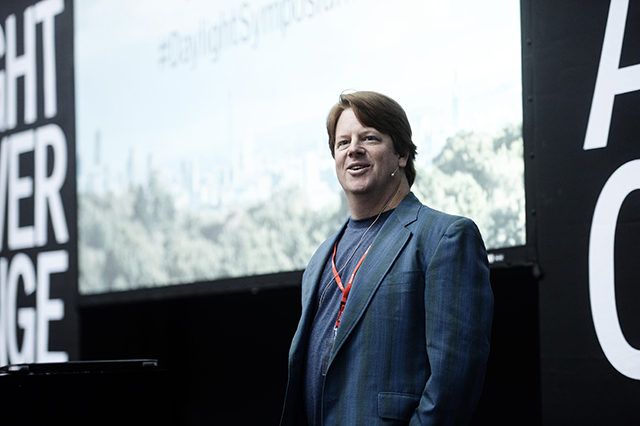
by Paul Bogard, James Madison University
A starry night is one of nature’s most magical wonders. Yet in our artificially lit world, most of us no longer experience true darkness. In this talk based on his book THE END OF NIGHT, Paul Bogard seeks to restore our awareness of the spectacularly primal, wildly dark night sky and how it has influenced the human experience across everything from science to art. Using a blend of personal narrative, natural history, science, and astronomy, Bogard shares the importance of darkness–what we’ve lost, what we still have, and what we might regain–and the simple ways we can reduce the brightness of our nights tonight.
Paul Bogard’s presentation at the 6th VELUX Daylight Symposium in London.
Paul Bogard is author of The End of Night: Searching for Natural Darkness in an Age of Artificial Light (Little, Brown, 2013) and editor of Let There Be Night: Testimony on Behalf of the Dark (U of Nevada Press, 2008). A native Minnesotan, Paul has lived and taught in Minneapolis, Albuquerque, Reno, northern Wisconsin, and Winston-Salem. A graduate of Carleton College, the University of New Mexico, and the University of Nevada-Reno (PhD in Literature and Environment), Paul is now an assistant professor at James Madison University in Harrisonburg, Virginia, where he teaches creative writing and environmental literature. Find him at paul-bogard.com.
Interview with Paul Bogard at the 6th VELUX Daylight Symposium in London.
This lecture was part of the 6th VELUX Daylight Symposium that took place in London on 2-3 September 2015 under the theme “Daylight as a driver of change”.
For more information and presentations please visit the Symposium section on this site.



